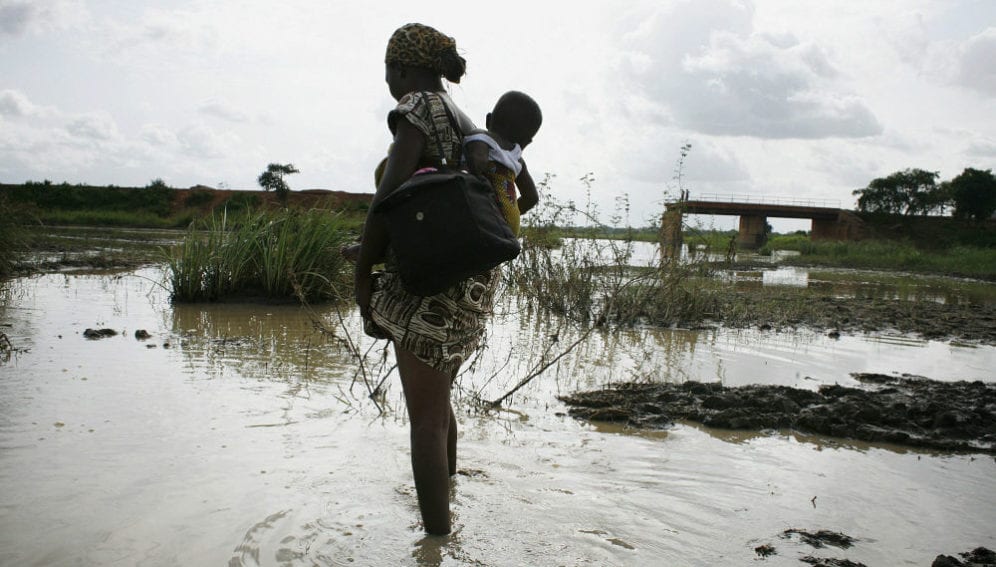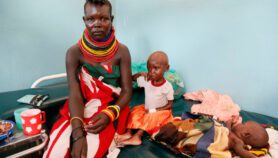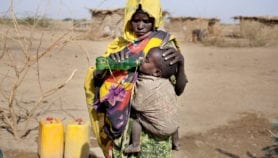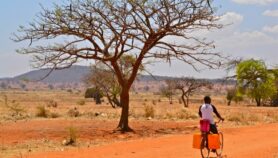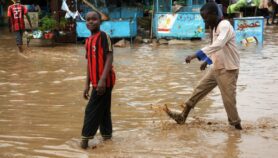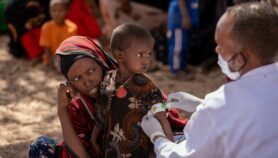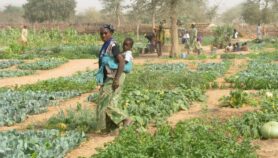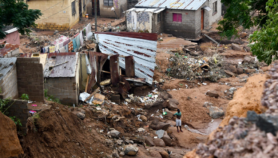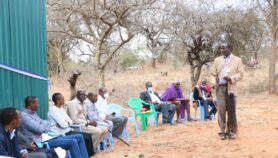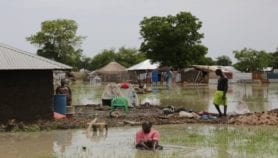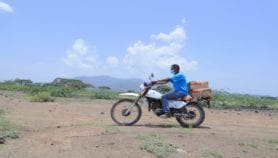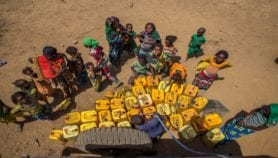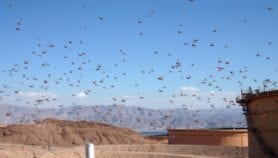By: Esther Ngumbi
Send to a friend
The details you provide on this page will not be used to send unsolicited email, and will not be sold to a 3rd party. See privacy policy.
The last few months have seen the Dominican Republic, Haiti, Puerto Rico and the United States suffer heavily from the devastating hurricanes.
The losses are enormous, and the impact is huge. Agriculture and farming have not been spared either. Losses of up to US$780 million in agricultural yields have been recorded in Puerto Rico, for instance. [1] The recovery efforts are expected to go on for months, if not years.
While it is simply devastating, it is also our new reality. Because of climate change, natural disasters such as hurricanes are expected to happen more frequently, with dire consequences.
Climate-related disasters in Africa
The African continent has also experienced its own share of climate-related disasters. For example, floods across Africa have killed 25 times more people than Hurricane Harvey did. [2] While chances for Africa to be hit by hurricanes are low, there is still a need to prepare for Africa’s common disasters including flooding.
“Floods across Africa have killed 25 times more people than Hurricane Harvey did.”
Esther Ngumbi
Disasters pose significant threats and would slow down and even erode significant steps made towards attaining sustainable development in many of the African countries. Most importantly, these disasters can heavily impact agriculture — the most vulnerable sector which also happens to be the backbone of many African economies. [3]
Africa should therefore use the grace period Mother Nature is giving the continent to prepare adequate disaster mitigation and preparedness plans that can quickly be rolled out should hurricanes and other climate change-related disasters hit Africa.
We can act ahead of time and not only save lives but also millions of dollars. For instance, according to a study by the Pew Charitable Trusts it pays to prepare for natural disasters. [4] In addition, according to the United Nations Development Programme, each dollar invested in preparing for disaster results into savings of seven dollars in recovery. [5]
Lessons from recent hurricanes
So, knowing that disasters are becoming common and that no country is immune, what can Africa do? What can we learn from this very active hurricane season?
First and foremost, preparedness is mandatory. To effectively deal with disasters including flooding and hurricanes, African countries need to prepare in advance. But to prepare, African countries must be able to effectively translate and package the climate-related information to support informed actions. Despite the growing volume of climate information across Africa, there are gaps between the information held in scientific institutions and that which is required to inform decision-making. [6]
Preparations, among other actions, must be undertaken by disaster preparedness authorities — specialised institutions that tackle disasters by widely disseminating disaster information to all citizens.
African countries can be creative and innovative in how they disseminate information before and after disaster strikes. Delivering messages through mobile phones is one approach that can be used because most African citizens own a mobile phone.
Second, government institutions must liaise with trusted climate forecasting institutions outside Africa such as the National Oceanic and Atmospheric Administration in the United States, and must be networked with similar institutions across Africa. Such global and regional institutional linkages allow for coordinated efforts while making it easy to share information on best practices.
Third, African countries must invest in special disaster insurance schemes and social protective services that are activated only when disasters strike. Food banks and accessible medical and healthcare supplies are also other important services that should be available to citizens when disasters strike.
Insurance schemes and social protective services can also be useful tools that could help citizens of African countries deal with common and frequent disasters including drought and famines that the continent continue to face every year.
“By actively preparing ahead of time and quickly rolling out these action plans, we can reduce the impact these disasters could have.”
Esther Ngumbi
Fourth, we must address grassroots poverty. The ability of citizens to deal with and rebound back from any disaster, including hurricanes, is heavily correlated with how vulnerable and poor they are. [7] Many African citizens are poor and thus, they are heavily affected by disasters. Fighting poverty at the grassroots must be the number one priority of African governments. Majority of the poor in Africa depend on agriculture as a source of livelihood. Therefore, one way science can be used to address grassroots poverty is by ensuring that African citizens have access to agricultural innovations such as improved drought-tolerant crop varieties, climate-smart-farming practices. These innovations could allow agriculture-dependent African citizens to increase their productivity and income and consequently allow them to grow out of poverty.
Most importantly, strong and clear leadership is essential. For example, in the United States, the governor of Texas and Florida, two of the states hit by recent hurricanes, were on the front-line, making sure that citizens knew what they are facing and what they should do. [8, 9] African leaders must follow these great examples.
Finally, the African continent should continue to rely on science, technology and scientific research to prepare and address future natural disasters. Science already does a good job explaining why disasters happen and where risks lie. For some disasters such as droughts, floods and cyclones, forecasts can be made of when they will occur.
Africa does not have to suffer from the brunt of Mother Nature. Disasters are expected to continue happening and we need to cultivate a culture of preparedness — a forward thinking practice. By actively preparing ahead of time and quickly rolling out these action plans, we can reduce the impact these disasters could have on millions of African citizens.
Esther Ngumbi is a postdoctoral researcher at the Department of Entomology and Plant Pathology at Auburn University in Alabama, United States. She serves as a 2015 Clinton Global University (CGI U) Mentor for Agriculture and is a 2015 New Voices Fellow at the Aspen Institute. She can be contacted at [email protected]
This piece was produced by SciDev.Net’s Sub-Saharan Africa English desk.
References
[1] Frances Robles and Luis Ferré-Sadurní Puerto Rico’s agriculture and farmers decimated by Maria (The New York Times, 24 September 2017).
[2] Yomi Kazeem Floods in Africa in August killed 25 times more people than Hurricane Harvey did (Quartz Africa, 04 September 2017).
[3] Li Guo and Wang Wei Investing in Africa’s agriculture: Solidifying foundation for sustainable and inclusive development (World Bank, 2016)
[4] It pays to prepare for natural disasters (The PEW Charitable Trusts, 08 May 2017)
[5] Disaster preparedness (UNDP, 23 July 2013)
[6] Chandni Singh and others The utility of weather and climate information for adaptation decision-making: current uses and future prospects in Africa and India (Climate and Development, 12 May 2017)
[7] Eleanor Krause and Richard Reeves Hurricanes hit the poor the hardest. (The Brookings Institution, 18 September 2017)
[8] Ada Carr and others Texas Hurricane Harvey: Widespread evacuations ordered in Texas (The Weather Company, 25 August 2017)
[9] Ron Sachs Gov. Scott demonstrating finest leadership in Florida’s darkest hours of Hurricane Irma (Florida Politics, 7 September 2017)
[10] Chris Funk and others The climate hazards infrared precipitation with stations—a new environmental record for monitoring extremes (Scientific Data, 8 December 2015


